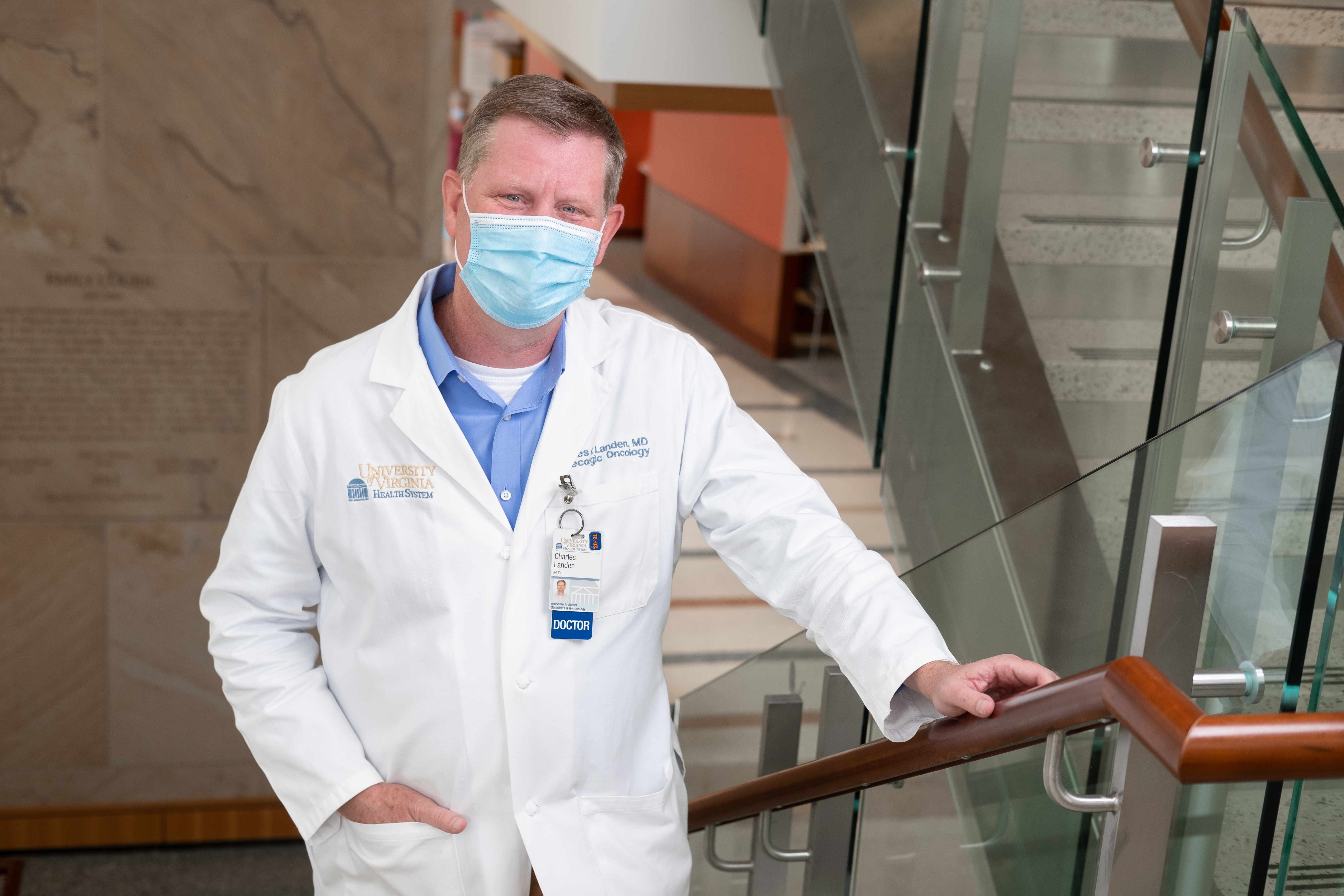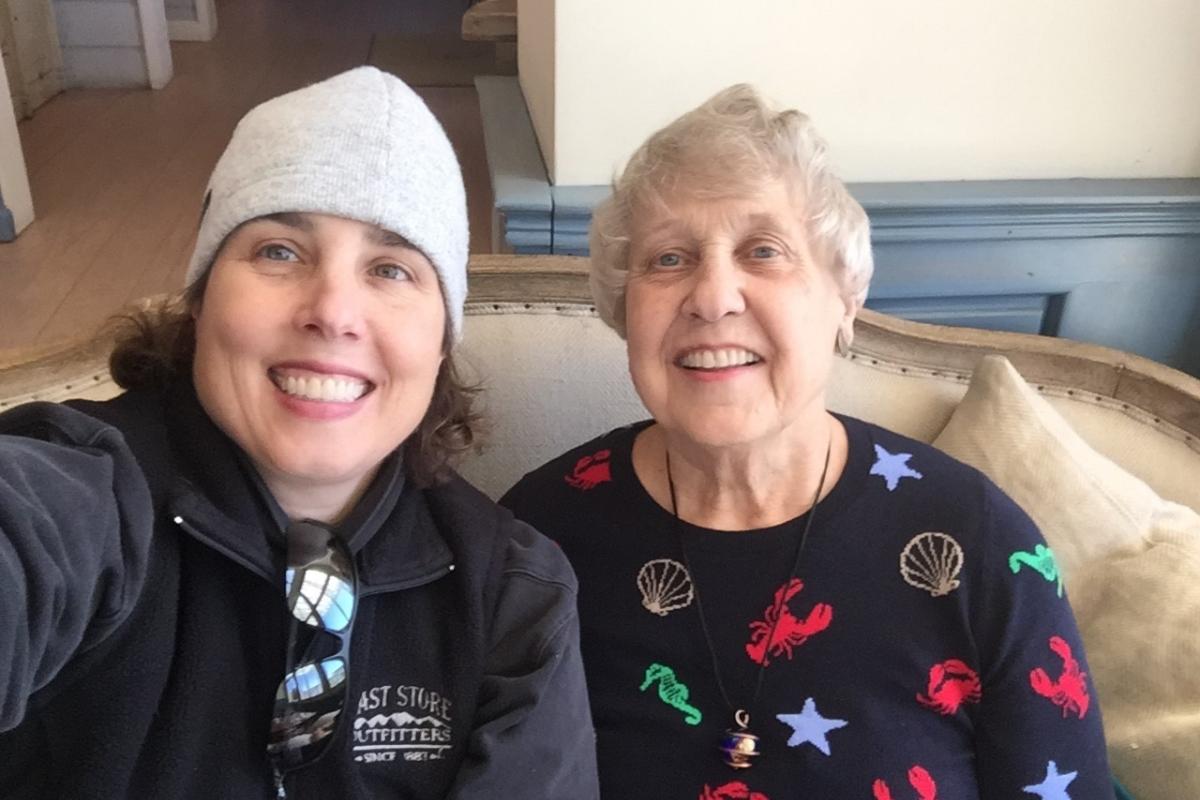A Part of the Solution
For the better part of a year, Dr. Deborah Armstrong (College ’88) brought her mother, Judith, to UVA Cancer Center for chemotherapy. Judith was being treated for ovarian cancer—a rare disease that only affects 1.7 percent of women.
During those visits, Dr. Armstrong’s mind began to wander.
“We have such great screenings for other diseases, so I’ve always wondered about and wished for an effective screening for ovarian cancer,” says Dr. Armstrong, who practices family medicine.
“It became more personal when my mom got it,” adds Dr. Armstrong. “When she should be enjoying her twilight years and slowing down naturally, she has had to face chemo every two weeks.”
Dr. Charles Landen, the OB/GYN and surgeon who treated Judith, says the danger of ovarian cancer is that most women don’t present until stage 3 or 4, when it has already moved out of the ovaries.
For this reason, Dr. Landen is researching two aspects of ovarian cancer that are both interconnected. One is an effective treatment, and the other is a noninvasive early detection screening.
Currently, healthcare providers are able to achieve remission about 75 percent of the time with chemotherapy and surgery. However, two-thirds of these patients will have a reoccurrence, and the prognosis is very poor at that point.
“Tiny cancer clusters are somehow surviving chemo,” says Dr. Landen. “We hope to identify that very small, microscopic population, figure out how it survives chemo, and find a cure to kill it off.”
In addition to pursuing research for this treatment approach, Dr. Landen and his team are assessing recent research that offers an exciting opportunity for potentially detecting the disease earlier.
“In the last 10 years, research has shown that most ovarian cancer starts in the fallopian tube,” says Dr. Landen, noting that the cells there are premalignant, which means that they are not yet cancerous. “Because successful cancer screenings work by identifying precancerous cells, we are hopeful that we can soon create a screening for ovarian cancer—it would be something akin to a pap smear.”
When Dr. Armstrong learned about Dr. Landen’s research, she knew that she wanted to help.
“Being a part of the solution would be a wonderful legacy,” says Dr. Armstrong, adding that one day she’d love to see ovarian cancer screening be as precise as breast cancer screening. “I think that would be such a neat thing to do for the other women who come along like mom or the 20-year-old who is surprised by a diagnosis.”

‘Hopeful’ and ‘honest’ are just a few of the words that Dr. Armstrong used to describe the care her mother received at UVA.
“Dr. Landen never seemed to be too busy to slow down and really spend some time with us,” says Dr. Armstrong. “We both felt so fortunate to be with him and the UVA Cancer Center caregivers.”
Dr. Landen is grateful for the support and optimistic about its impact.
“This is a gift that will produce a positive ripple effect for two reasons,” says Dr. Landen. “First, it will enable discovery. Second, and most importantly, it will benefit the people who we are all here to help—our patients."

